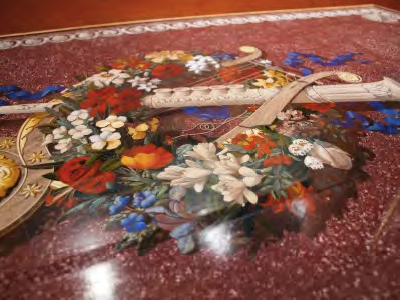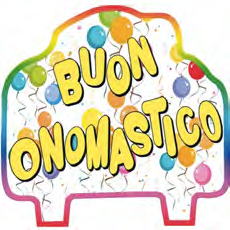Ci scusiamo. Al momento non è disponibile alcuna traduzione italiana per questa pagina.
 Florence, Tuscany – Take time to visit this tiny jewel in Florence: the Opificio delle Pietre Dure.Literally meaning “Factory of Hard Stones”, this lovely museum is an excellent antidote to “compulsory tourist sites” overload. The subject of its collection is semiprecious stone and its use in intarsio (inlay) for the production of all sorts of decoration.
Florence, Tuscany – Take time to visit this tiny jewel in Florence: the Opificio delle Pietre Dure.Literally meaning “Factory of Hard Stones”, this lovely museum is an excellent antidote to “compulsory tourist sites” overload. The subject of its collection is semiprecious stone and its use in intarsio (inlay) for the production of all sorts of decoration.
The craft of inlay work goes back to antiquity, but it was revived on a grand scale by Ferdinando I de’ Medici for the decoration of the furnishings, artworks, and architecture seen today all over Florence. In fact this Grand Ducal workshop was established to carry out the elaborate stone inlay work found in the Cappella dei Principi (Basilica ofSan Lorenzo). The art of assembling stone fragments to cover large or small surfaces, including objects, furniture or whole walls, was studied and perfected by skillful and carefully chosen artisans.
The thin layers of stone veneer were selected for color, brilliance, and opacity or translucence to create refined pictorial effects.
The museum is dedicated to the display of intarsio work, its history, and its many uses. Also on view are work benches and tools used in antiquity to create the pieces, as well as wall displays containing countless specimens of the stones (and their origins) used. Today the Opificio is a renowned institution for training and restoration of all kinds.
Opificio delle Pietre Dure, Via Alfani, 78, Firenze
Many thanks to Rebecca Dominguez and Bradley Griffin for the use of their beautiful photos. Truly appreciated!
— ItalianNotebook.com



 Florence, Tuscany – Take time to visit this tiny jewel in Florence: the Opificio delle Pietre Dure.Literally meaning “Factory of Hard Stones”, this lovely museum is an excellent antidote to “compulsory tourist sites” overload. The subject of its collection is semiprecious stone and its use in intarsio (inlay) for the production of all sorts of decoration.
Florence, Tuscany – Take time to visit this tiny jewel in Florence: the Opificio delle Pietre Dure.Literally meaning “Factory of Hard Stones”, this lovely museum is an excellent antidote to “compulsory tourist sites” overload. The subject of its collection is semiprecious stone and its use in intarsio (inlay) for the production of all sorts of decoration. In Italy, as well as in many other countries in Europe and Latin America, people celebrate the day of the year associated with one’s given name.Italians call it onomastico.
In Italy, as well as in many other countries in Europe and Latin America, people celebrate the day of the year associated with one’s given name.Italians call it onomastico.